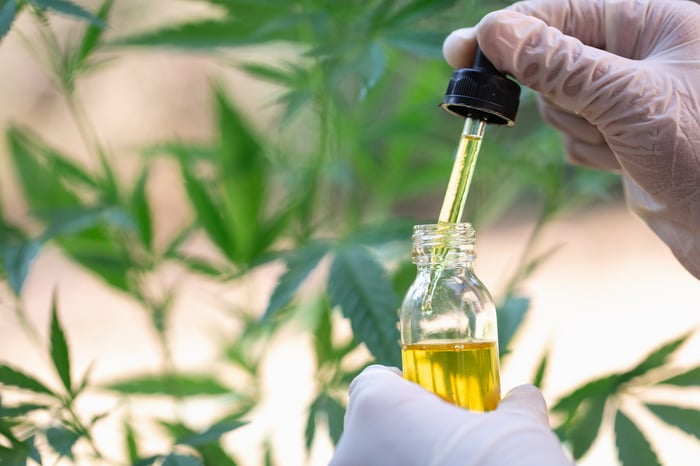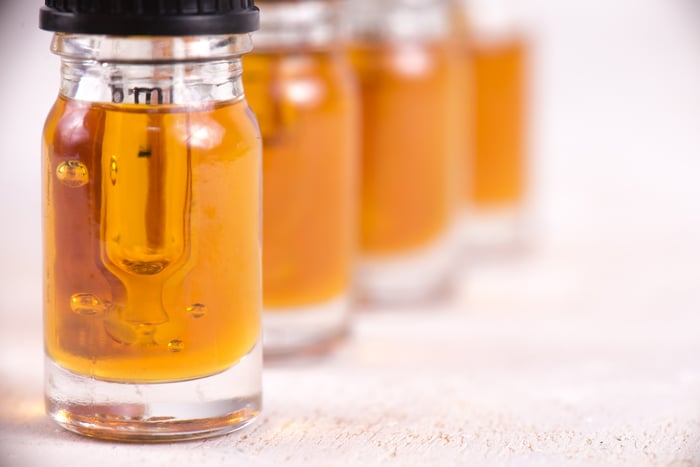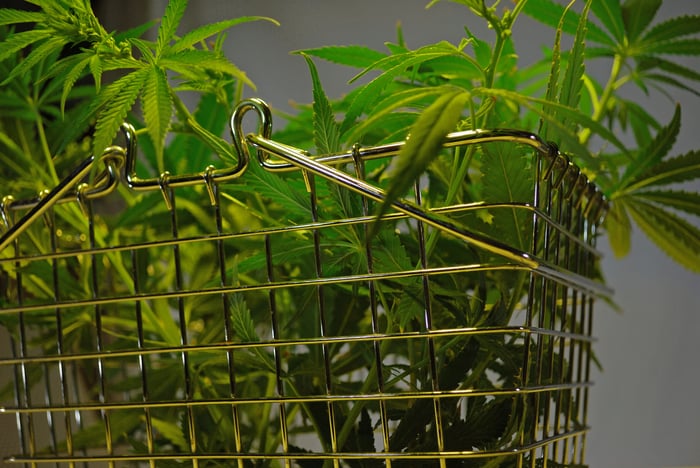Over the next decade, marijuana is projected to be one of the fastest growing industries. Having already more than tripled sales on a worldwide basis between 2014 and 2018 to $10.9 billion, the industry has some Wall Street forecasts calling for $50 billion, $75 billion, or even $200 billion in annual global weed sales by 2030. Figures like these are what make marijuana stocks such an attractive investment opportunity.
But as investors, we also know that no nascent industry is without growing pains. Right now, pot stocks throughout North America are contending with their fair share of unforeseen hiccups, and investors are paying the price. Since the end of March, many brand-name cannabis stocks have lost more than half of their value.
How do investors take advantage of such a rapidly growing industry that still needs time to mature? The simple answer is to invest wisely. That means not trying to time your investments, or putting your eggs in one basket. Rather, there are three ways to potentially minimize risk that still give investors a healthy dose of exposure to the cannabis industry.

Image source: Getty Images.
1. Buy a trio of extraction-service providers
Arguably one of the smartest moves investors can consider is buying the extraction-service provider trio of Neptune Wellness Solutions (NEPT), MediPharm Labs (MEDIF -2.46%), and Valens GroWorks (VLNS). Extraction companies take cannabis and hemp biomass and provide resins, distillates, concentrates, and targeted cannabinoids for their clients. In addition, they may also offer white-label packaging and manufacturing services.
What makes extraction-service companies so exciting is that the North American marijuana industry is going to be pushing hard to promote derivatives in the years that lie ahead. Derivatives are non-dried-flower products, such as edibles, vapes, and infused beverages, and they bear much higher margins for pot companies than traditional dried cannabis. On Oct. 17, 2019, regulations concerning derivatives went into effect in Canada, with these products expected to begin appearing on dispensary shelves in mid-December.
Recent health concerns regarding vaping in the United States, and persistent supply issues throughout Canada, have weighed on Neptune Wellness, MediPharm, and Valens of late. But these concerns are likely exaggerated given that the resins, distillates, concentrates, and cannabinoids provided by these extraction companies are used in a wide variety of derivative products, and not just vapes.
Furthermore, Neptune, MediPharm, and Valens have all signed extraction services deals ranging from 18 months to three years. These contracts ensure predictable and steady cash flow for all three companies, no matter what sort of growing pains Canada is contending with.
Derivatives are the future, which makes Neptune, MediPharm, and Valens the go-to middlemen.

Image source: Getty Images.
2. Focus your attention on North American CBD
Another smart consideration for pot stock investors is to buy into the cannabidiol (CBD) craze sweeping North America -- and, more specifically, the United States. CBD is the nonpsychoactive cannabinoid that's best known for its perceived medical benefits. Although CBD can be found in, and extracted from, the cannabis plant, it's often abundant in hemp plants.
In December 2018, President Trump signed the Farm Bill into law, making industrial hemp production and hemp-derived CBD -- containing no tetrahydrocannabinol (THC) -- legal across the country. THC is the cannabinoid that gets users high. By signing this bill, Trump paved the way for U.S. companies to offer high-margin CBD-infused topicals, oils, and an assortment of other derivatives. It also allows general retailers to carry CBD products, rather than just licensed dispensaries.
According to the Brightfield Group, the U.S. CBD market is expected to grow to $23.7 billion in annual sales by 2023. If accurate, this would register as a compound annual growth rate of more than 100% between 2019 and 2023. Plus, since CBD doesn't get users high, there's the expectation that it'll appeal to a broader audience.
Though the U.S. CBD industry remains highly diverse, Charlotte's Web (CWBHF 4.22%) has emerged as the market share leader. After beginning the year with access to 3,680 retail doors, Charlotte's Web has pushed this figure to north of 8,000. Recent wins have included a 1,350-store contract with Kroger-family stores in 22 states, as well as more than 700 Vitamin Shoppe locations in 45 states. As one of the best-known CBD stocks, Charlotte's Web has been able to translate its expansion into early-stage profits, which is something many of its peers can't say.

Image source: Getty Images.
3. Consider an exchange-traded fund focused on cannabis
Lastly, investors can be smart about their cannabis exposure by purchasing an exchange-traded fund (ETF) with a marijuana focus. Though they'll be paying a net expense ratio of around 0.75% annually, they'll gain instant diversification to the cannabis industry. Thus, if a company goes up in smoke, it's not the end of your investment portfolio.
For example, the Horizons Marijuana Life Sciences ETF (HMLSF -9.94%), the first ETF focused on cannabis, has close to 510 million Canadian dollars in net assets spread across close to five dozen holdings of various weightings. As you might imagine, a handful of holdings do bear a lot of weight, and the Horizons Marijuana Life Sciences ETF does lean significantly toward growers and Canadian players. But there are an abundance of ancillary companies, too, with substantive representation from CBD powerhouse Charlotte's Web and cannabinoid-focused drug developer GW Pharmaceuticals.
Few ETFs are going to offer the type of diversification that the Horizons Marijuana Life Sciences ETF brings to the table, making it an intriguing option for investors who want cannabis exposure but perhaps don't have the time or effort to commit to researching dozens of pot stocks.

